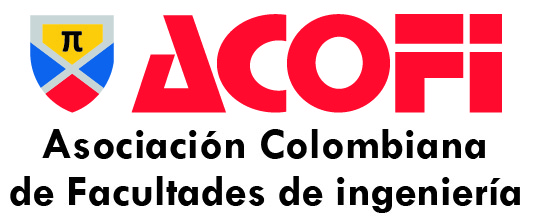Methodological guide for the construction of virtual personalized and collaborative courses with a multi-agent focus
DOI:
https://doi.org/10.26507/rei.v4n7.71Keywords:
e-learning, intelligent tutorial system, computer supported collaborative learning, multi-agentAbstract
With the growth and popularity of the Internet, educational systems are becoming more attractive, but most of these are a network of pages with static pedagogical content. For this reason today there aren’t specific methodologies to facilitate the construction of Intelligent Tutorial Systems (ITS) allowing adapt contents to the user characteristics and facilitate the use of collaborative tools that enhance knowledge too. Therefore, the objective of this paper is to present a methodological guide for the analysis, design and development of ITS with Computer Supported Collaborative Learning (CSCL) based on the paradigm of Multi-Agent Systems (MAS). It should be noted that this methodological approach will be validated through the implementation of a prototype which is being developed in the CIA (Adaptative Intelligent virtual courses) project.Downloads
References
Akhras, F. & Self, J. (2002). Beyond Intelligent Tutoring Systems: Situations, Interactions, Processes and Affordances. Instructional Science, Vol. 30.
Arias, F. Marulanda, J. & Ovalle, D. (2006). Diseño y Desarrollo de Mecanismos de Razonamiento Multi-Agente para la Negociación de Energía Eléctrica Utilizando JESS Y JADE. Revista Avances en Sistemas e Informática, Escuela de Sistemas de la Universidad Nacional de Colombia, sede Medellín. ISSN 1657-7663, Volumen 3, Número 1, pp. 51 - 56.
Bocca, E. Jaques, P. & Vicari, R. (2003). Modelagem e Implementação da Interface para Apresentação de Comportamentos Animados e Emotivos de um Agente Pedagógico Animado. Renote - Revista Novas Tecnologias na Educação, Vol. 1, No 2.
Collazos, C. & Mendoza, J. (2006). Cómo aprovechar el “aprendizaje colaborativo” en el aula. Educación y Educadores, año/vol. 9, número 002, pp. 61-76. Universidad de La Sabana, Chía.
Vicari, R. Flores, C. Seixas, L. Silvestre, A. Ladeira, M. & Coelho, H. (2003). Multi-Agent Intelligent Environment for Medical Knowledge. Artificial Intelligence in Medicine, Elsevier Science, Vol. 27, Issue 3.
Wooldridge, M. (2002). “An Introduction to Multi-Agent System”. 1ª ed. Baffins Lane, England: John Wiley & Sons ltd. ISBN: 0-471-49691-X.
Arias, F & Ovalle, D. (2008). Modelo para el desarrollo de Estrategias Colaborativas que permitan Reforzar el Aprendizaje en Cursos Virtuales. Tendencias en Ingeniería de Software e Inteligencia Artificial, Vol. 2. Universidad Nacional de Colombia, Bogotá.
Jiménez, J & Ovalle, D. (2002). Modelo de Integración de Ambientes Individualizados y Colaborativos de Aprendizaje: Nuevo Paradigma Educativo. Congreso Iberoaméricano Informática Educativa.
Peña, C. Marzo, De la Rosa, J. & Fabregat, R. (2002). Un sistema de tutoría inteligente adaptativo considerando estilos de aprendizaje. Universitat de Girona, España. Congreso Iberoaméricano Informática Educativa.
Díaz, P. & Ruiz, R. (2007). Adaptaciones Curriculares (I) En: www.down21.org/educ_psc/educacion/Curricular/adaptacion_curricular.htm
Duque, N. (2007). Informe de avance de Tesis de Doctorado en Ingeniería-Sistemas. Universidad Nacional de Colombia, sede Medellín.
Iglesias, C. (1998). Definición de una metodología para el desarrollo de Sistemas Multi-Agente. Tesis Doctoral, Departamento de Ingeniería de Sistemas Telemáticos Universidad Politécnica de Madrid.
Jiménez, J. (2006). Un Modelo de Planificación Instruccional usando Razonamiento Basado en Casos en Sistemas Multi-Agente para entornos integrados de Sistemas Tutoriales Inteligentes y Ambientes Colaborativos de Aprendizaje. Tesis de Doctorado en Ingeniería - Sistemas, Universidad Nacional de Colombia, sede Medellín.
Silveira, R. (2001). Modelagem Orientada a Agentes Aplicada a Ambientes Inteligentes Distribuídos de Ensino: JADE Java Agent framework for Distance learning Environments. Universidade Federal do Rio Grande do Sul. Tesis Doctoral.
Ovalle, D. Arias, F. Hoyos, A. Betancur, D & Jiménez, M. (2007). Análisis funcional de la estrategia de aprendizaje individualizado adaptativo. Proyecto de investigación – dime – vicerrectoría de investigación. Modelo de sistema Multi-Agente de cursos adaptativos integrados con ambientes colaborativos de aprendizaje.
Downloads
Published
How to Cite
Issue
Section
License
Total or partial reproduction of the documents published in the journal is authorized only when the source and author are cited.
| Article metrics | |
|---|---|
| Abstract views | |
| Galley vies | |
| PDF Views | |
| HTML views | |
| Other views | |








